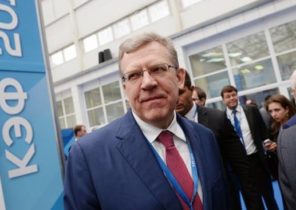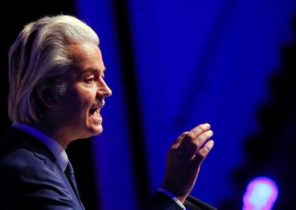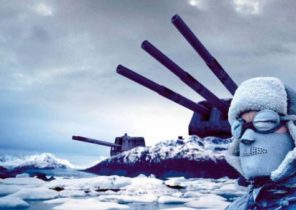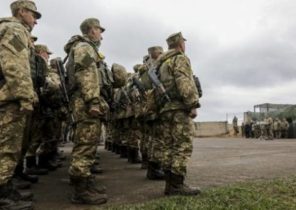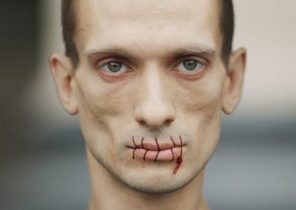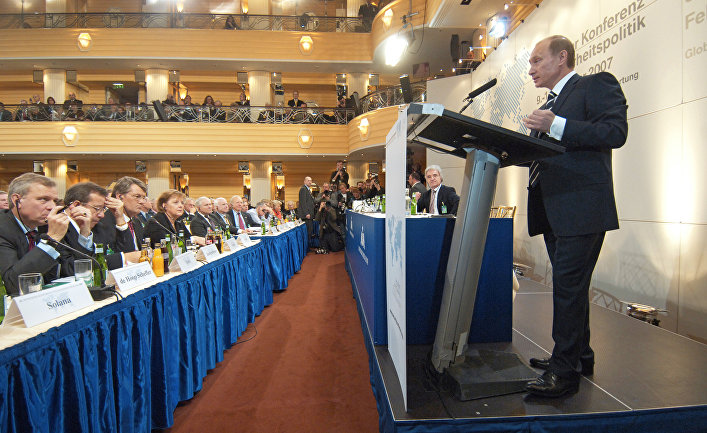
Exactly 10 years ago Russia’s President Vladimir Putin surprised everyone, and many frightened. On the next Munich security conference (the forum meets every year for over half a century), the Russian leader made a vigorous speech, very critical of the policy of the West against his country. This speech is often called the starting point of the current confrontation between Moscow and the West, the apogee of which was the annexation of the Crimea and the war in the Donbass.
Then reread the speech of Vladimir Putin is very interesting. Considering all the things together since the Munich speech 10 years, some of its passages seem paradoxical: the President of Russia of 2007 as though he condemns many of them made in subsequent years. Quoted Putin:
“Today we are witnessing an almost unrestrained, hypertrophied use of force in international Affairs, military force, plunging the world into the next one after the conflicts. As a result of not enough strength to find a comprehensive solution to any one of them.”
“In international relations we increasingly see the desire to resolve a given question according to so-called political expediency, based on the current political situation.”
“I want to emphasize this — no one feels safe! Because nobody can hide behind international law is like a stone wall”.
“Today, on the contrary, we are witnessing a situation where the country in which the death penalty is forbidden even against murderers and other dangerous criminals, in spite of this, it is easy to go to participate in military operations that would not be considered legitimate. But these conflicts are killing people — hundreds, thousands of innocent people!”
“We must not forget that democratic political actions necessarily involve discussion and painstaking decision-making process”.
“We are trying to impose new dividing lines and walls may be virtual but they are nevertheless dividing, ones that cut through our continent.”
“We are well aware of how the world has changed a realistic sense of our own possibilities and your own potential.” (Quoted from the text published by the newspaper “Izvestia” February 12, 2007).
About the changed in 10 years, the world, about the possibilities and potential of today’s Russia and its partners and opponents in an interview with Radio Liberty says the political scientist, expert on international security Yuri Fedorov.
— Can we say that 10 years ago in Munich, Putin is quite clearly warned Western countries that it does not suit Russia’s geopolitical position and he intends to start a confrontation with the Western world?
— Perhaps, Yes. Putin in the Munich speech brought together all typical of the then Russian political rhetoric of accusations against the West. He said that the West deceived Russia, because once allegedly promised that NATO expand to the East will not be mentioned us missile defense in Europe and so on. Then he said that Russia will now conduct typical of a great power independent policy. Apparently, it was about the policy, not tied to any obligations and limitations for the foreign policy of the state that seeks to join the community of civilized countries, as it was then often used to say. In General, Putin proclaimed a new, more aggressive course. Another thing, how the West reacted to this proclamation.
— Was this response adequate? Putin’s speech refers to 2007, and in 2008 going on the Russian-Georgian conflict. Can I say that in a sense, Georgia has determined the Crimea? Namely: not in the face of strong opposition from the West in 2008, the Kremlin realized that Yes, it is possible to act cheeky.
— Yes, you are absolutely right. I must say that today the Georgian war is almost forgotten and journalists, and political scientists. Meanwhile this war was a turning point, when the words of “an independent foreign policy” Putin got down to business and tried to implement some of their ideas, which were nurtured for a long time. But the reaction of the West was very significant. This softness, an unwillingness to recognize the Russian threat to countries of the former USSR, on the one hand, and with another — unwillingness to admit that Russia has embarked on a much more aggressive way in foreign policy, determined the lot. She convinced Putin that the West is too weak, not ready to use force to counteract Russia. And Putin takes into account only the strength and determination. Their absence has convinced Putin that you can act on. After 2012, when Putin re-formally, and not only became head of state, and began the implementation of what then was called the concept of “Russian world”, we all know that.
— There are two opposing interpretations of what is happening in recent years in relations between the West and Russia. You present interpretation, which coincides with the West: Putin’s Russia is aggressive, it seeks to restore influence in the former Soviet Union, and, perhaps, wider. The Russian interpretation often heard, including from the mouth of Putin himself, as a defense, in the spirit of known explanations of the Russian side, saying that if we had not taken Crimea, tomorrow there would be NATO troops. With such a different interpretation of the facts whether it is possible a dialogue and a compromise — or is it a situation where one of the parties must eventually bound to lose?
— There are actually two questions. The first issue is about the perception of Russia’s Western policy. Foreign policy Putin’s vision and the people who surround him, is a mixture of two complexes. On the one hand, it’s megalomania, the idea of Russia as a great power, which must regain its strength and influence in the world, be on a par with the United States or China, the megalomania of its kind. On the other hand, this persecution, the belief that Russia is surrounded by enemies, these enemies seek to undermine its influence, and sometimes even to destroy the country as a subject of world politics. This, for example, quite openly told Nikolai Patrushev. This blend of two obsessions leads to a totally inadequate perception of world politics. So I can’t say that the Russian view of the fact that if it was not captured in the Crimea, there would have appeared NATO troops is just a propaganda tool. I do not exclude that the Kremlin really think so. This determines the danger of Russian foreign policy, and it’s still nuclear power.
Another question, is it possible to build with Russia some schemes of cooperation, if its policy is determined by such complexes. I guess it’s possible in some specific areas, towards some individual problems, but it’s actually very difficult realistically thinking person to build a normal relationship with the person whose behavior is motivated by the painful beliefs about the external world and about the people who surround him.
— You talk about the pain perception of the complexes that drive Russian foreign policy. On the other hand, Pro-Kremlin politicians, and members of Putin’s entourage, and sometimes he personally appeal to pragmatism, to the point that we should agree that it is necessary to carry out the division of spheres of influence in the spirit that dominated world politics in the past and even the nineteenth centuries. Proposed a return to the spirit of Realpolitik. How, in your opinion, sincerely, this is thought? Putin’s alternative is a return to real politics or something else? He was a revolutionary or a reactionary?
— Yeah, you heard such suggestions from Russian political parties, to some extent, it is typical of Russian diplomatic rhetoric, although in a much more veiled form. To establish a new Holy Alliance: Russia, China, the United States, maybe Europe, well, refers to a different configuration. Intellectually it’s really a legacy of the nineteenth century, maybe a few more later — Yalta-Potsdam world order. But this is not a pragmatic policy, or if you want Realpolitik for one simple reason. After all, the real influence of Russia is not comparable with the influence that had, say, the Russia of Nicholas I in post-Napoleonic Europe or Stalin’s Soviet Union after the Second world war. Russia’s GDP is less than 2% of world GDP, i.e. 10 times less, than GDP of the United States. Here one can cite many different figures showing that Russia is at best a regional power, as in his time, said Barack Obama. Vladimir Putin is very offended by this comparison, but it’s true. Therefore, what sections of the world into spheres of influence we can talk and such, to the sphere of influence of Russia has been very solid and pre-determined? This is an unrealistic approach, returning to the same complex of a great power.
Another thing is that I sometimes think that if a certain Realpolitik will prevail in the world, but it will be based on the big deal between the United States and China as the two global powers. But Russia’s place in this deal somewhere, even for a second and on the third cast.
— However, the new President of the United States Donald trump probably has positioned itself as a supporter of confrontational policy just in relation to China. Not transactions, but rather confrontation — economic, and there, staring, and power in varying degrees. With this many scientists, including Western, link the advances trump against Russia: as they say, against whom will be friends? It is clear that against China. Not whether Putin’s Russia is due to this “break the Bank” in the coming years, and if it isn’t a result of the reformatting of the entire security system in the world?
— If, indeed, in US policy will prevail confrontational line against China, but by itself it is not a fact, because China and the United States have very extensive and powerful system of economic relations, the Kremlin may try to accept such a deal with the United States. But it may be the Kremlin and Russia are very costly. Because in practice, the Russian far East defenseless in the event of any complications with China. I would even say maybe it will be some exaggeration — that the Russian far East remained Russian until, while in Beijing did not decide otherwise. Even here we are not talking about some hypothetical military invasion, but simply that the Russian far East may one day realize and recognize a very simple thing: Beijing is close, very close, but Moscow is very far away and will not help. It is quite possible that some kind of Alliance with China would be more favorable from a pragmatic point of view for them than maintaining the current order of things. It’s very difficult, of course, to predict how events will develop in the far East in case of aggravation of relations between Moscow and Beijing. But the Chinese reaction can be quite painful for Russia.
— In the far East at the moment, Russia is not too active, but in Europe rather. This activity, at least at first glance, looks quite successful, since among European politicians more and more of those who inclined to the idea of the abolition of the sanctions regime against Russia, declares its sympathies for Moscow. Can we say that the Kremlin in recent years has taken his opponents into submission?
— I would not exaggerate the importance of these sentiments. Yes, they are almost all European countries, but it’s still the sentiment of those political forces which have not yet come to power. And I’m not sure that — let’s imagine a purely hypothetical option — marine Le Pen elected President of France, will immediately begin to implement all of their statements about the necessity of revision of relations with Russia.
— And what prevents it?
— Declaration of the political forces and parties that aspire to power, often very different from practical action after coming. But this is a very common argument. Yes, it seems that Europe is somewhat “tired” from sanctions, the so-called Ukrainian problem. But I’m not sure what Russia might have something new to offer Europe in exchange for the lifting of sanctions. But no serious politician in Europe will not take responsibility for the new aggravation of the situation in and around Ukraine, will not give the green light for another Russian military adventure against Ukraine, which could lead to the lifting of sanctions. European politicians, and they are really pragmatists in the mass, say, and what we get in return? The Kremlin’s response can only be one: we will work with you, for example, in the fight against international terrorism. Very well, let us cooperate. But what Russia can offer in the fight against terrorism? There are in fact many questions.
Moscow does not consider, for example, the notorious Hamas terrorist. Of course, in Europe, may raise the question: let the Russian ground forces will start real large scale operation in Syria against the “Islamic state”. But it’s almost impossible.
If Russia decides on a ground operation in Syria, it could lead to a new Afghanistan. I think that the Kremlin will not go for it. Just “bomb dust”, “Islamic state” (in Russia recognized as a terrorist organization — approx. ed.), of course, possible, but it does not treat the origins and roots of the phenomenon of Islamic radicalism and terrorism. So here too, there are plenty of pitfalls.
So, 10 years ago, if counting from the Munich speech, began a period of sharp deterioration of Russia’s relations with the European Union and the United States. To any intermediate balance, we now can come 10 years later after Putin’s speech?
— The Kremlin has tried to implement the policy, which Putin declared in his speech in Munich on 10 February 2007. We can say that this policy has exhausted itself, had stalled. In Ukraine, Putin their goals are not achieved, there is no “new Russia” did not work. The West went on quite painful for Russia sanctions as a result of actions in the Donbass region, especially after the destruction of the Malaysian airliner. The West has shown a tough stance against the possible actions of Russia in the Baltic States. Yes, in Europe and the United States there are voices in favor of the fact that the sanctions should be lifted. But they are not cancelled and it is unknown whether. Nothing specific, the real Putin could not achieve. His task now is to try without much damage to their reputation, a political profile to get out of this situation, while maintaining at least partially the face, — the political scientist, expert on international security Yuri Fedorov.

